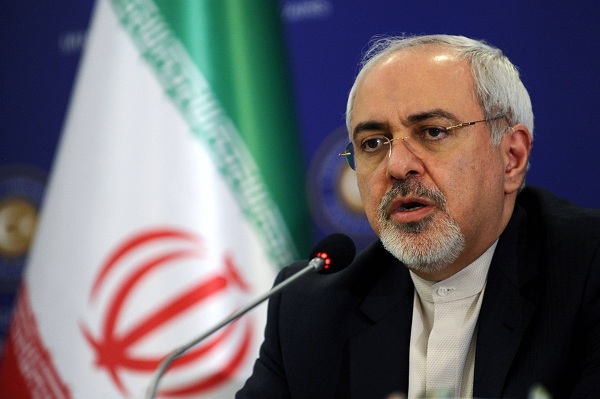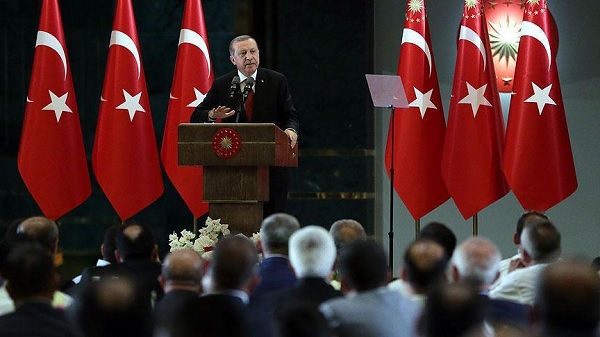
by Editor | May 25, 2021 | World
 Washington : The White House rejected Turkey’s offer to release an American pastor in exchange for forgiveness of billions of dollars in US fines on a Turkish bank, a senior administration official told The Wall Street Journal.
Washington : The White House rejected Turkey’s offer to release an American pastor in exchange for forgiveness of billions of dollars in US fines on a Turkish bank, a senior administration official told The Wall Street Journal.
The rejection could lead to the US imposing additional sanctions against Turkey sometime this week, the Journal reported on Sunday.
Last week, Treasury Secretary Steven Mnuchin said that the US was willing to do so if the pastor Andrew Brunson was not released.
“A real NATO ally wouldn’t have arrested Brunson in the first place,” the senior White House official told the Journal. Turkey is a member of the North Atlantic Treaty Organisation (NATO).
Brunson’s incarceration in a Turkish prison has soured the two countries’ relationship, sparking a crisis that has contributed to a sharp decline in Turkey’s currency, reports CNN.
On Friday, a Turkish high criminal court rejected Brunson’s appeal to be released from house arrest and allowed to travel abroad after his appeal was rejected by a lower court.
The North Carolina pastor has been held in Turkey since 2016 after being accused of helping plot a coup attempt against Turkish President Recep Tayyip Erdogan.
—IANS

by Editor | May 25, 2021 | Interviews, Muslim World

Iranian Foreign Minister Mohammad Javad Zarif
Tehran : The US is addicted to applying sanctions on Iran, Iranian Foreign Minister Mohammad Javad Zarif told CNN in an exclusive interview.
“I believe there is a disease in the US and that is the addiction to sanctions,” he told CNN on Sunday from Tehran.
“Even during the (former President Barack) Obama administration, the US put more emphasis on keeping the sanctions it had not lifted rather than implementing its obligation on the sanctions it lifted.”
The interview is the first Zarif, the key architect of the complex nuclear deal between Iran and the West, gave to Western media since some of the US sanctions against Tehran were renewed last week.
The US-educated minister gave the interview in English on the 65th anniversary of a Washington-backed coup that overthrew democratically elected Iranian Prime Minister Mohammad Mossadegh.
Zarif retained a clear belief during the hour-long interview that the nuclear deal could be revived regardless of President Donald Trump’s administration’s denunciation of it.
In May, Trump withdrew from the deal, known as the Joint Comprehensive Plan of Action (JCPOA) and intended to limit Iran’s nuclear ambitions in exchange for sanctions relief, calling it a “horrible one-sided deal that should have never, ever been made”.
The first wave of sanctions that were to “snap back” under the administration’s move hit the import of car parts and precious metals on August 6.
Zarif expressed his dismay that the US has not learned that sanctions were ineffective in changing the political climate in Iran.
“We felt that the US had learned that at least as far as Iran is concerned, sanctions do produce economic hardship but do not produce the political outcomes that they intended them to produce, and I thought that the Americans had learned that lesson. Unfortunately I was wrong,” the Minister told CNN.
He said that the same ’50s thinking embodied the current US approach.
“I think the US administration still believes that it is working with the government it installed in Iran after the 1953 coup,” he said, adding “As they say, they have to wake up and smell the coffee.”
For much of the interview, Zarif appeared to dismiss the possibility of future talks with the Trump administration and maintain the hope the deal can be revived.
“We do not want to revisit that nuclear deal… We want the US to implement that nuclear deal. Today the closest US allies are resisting those sanctions. The US basically arm-twisting — its attempt to put pressure. I don’t want to use the term bullying … (but) that’s what it amounts to.”
Additional sanctions are due to hit Tehran in November against the Iranian oil industry, which accounts for a fifth of the country’s GDP.
—IANS

by Editor | May 25, 2021 | World
 Washington : US President Donald Trump said on Saturday that the US has ended the development fund for Syria, urging “rich countries” to pay instead.
Washington : US President Donald Trump said on Saturday that the US has ended the development fund for Syria, urging “rich countries” to pay instead.
In a tweet, Trump said “the US has ended the ridiculous $230 million yearly development payment to Syria.”
“Saudi Arabia and other rich countries in the Middle East will start making payments instead of the US,” he said.
“I want to develop the US, our military and countries that help us!”
Earlier on Friday, the US State Department said that the fund, which was targeted to support the stabilization initiative in Syria, has been ordered to be redirected, ramping up speculation that it would be withdrawn from the country.
US former Secretary of State Rex Tillerson announced on February 13 that the US pledges $200 million in support of the anti-IS coalition efforts and recovery commitment in Syria, Xinhua reported.
However, Trump reportedly ordered in March a hold on the funds, demanding more information on how the money is being used, and urging other countries to step up to the plate and pay more.
He also said that his country will withdraw its troops in Syria “very soon,” triggering speculation of the US possible retreat from Syria.
Syria has always denounced the US military action in the country as uninvited aggression.
—IANS

by Editor | May 25, 2021 | Markets, Technology, World
 By Barry Eitel,
By Barry Eitel,
San Francisco: A new report Friday finds tariffs on Chinese technology goods proposed by the U.S. could end up costing American consumers up to $3.2 billion per year.
The forecast by the Consumer Technology Association (CTA) finds American consumers would pay between about 3 – 6 percent more for tech products like speakers, headphones, and smartwatches, even if the products were not produced in China. Prices would rise between 8.5 and 22 percent for products with components imported from China.
In July, U.S. President Donald Trump imposed tariffs on $34 billion worth of goods imported from China. By the end of August, tariffs are scheduled to begin on another $16 billion worth of Chinese imports. Late last month, Trump said on CNBC he would be willing to collect tariffs on all Chinese imports, which accounts for some $505 billion worth of goods.
“With the economy thriving under President Trump – we’ve seen remarkably low unemployment and a booming stock market – the administration shouldn’t jeopardize America’s global standing with tariffs,” CTA president Gary Shapiro said in a statement. “Foreign governments don’t pay the cost of tariffs, Americans do – and for that reason, U.S. trade policy needs to steer clear of tariffs that act like taxes on American manufacturers and consumers.”
One proposal from the White House sets tariffs on printed circuit assemblies and connected devices at 10 percent – CTA says that would cost the American economy about $520.8 million per year. Tariffs at 25 percent, which have also been discussed by Trump officials, would cost the economy $2.4 billion annually.
Tech components targeted by Trump are crucial for the manufacture of items ranging from broadband modems to wireless headphones.
“The danger we face – the unintended consequence – is that tariffs mean Americans will pay more for all the devices they use every day to access the internet,” Shapiro added.
—AA

by Editor | May 25, 2021 | Muslim World

Turkish President Recep Tayyip Erdogan
Ankara : Turkish President Recep Tayyip Erdogan on Tuesday announced that his country will boycott American electronic products.
The announcement came in his address to a symposium organized by the Foundation for Political, Economic and Social Research (SETA) on the 17th foundation anniversary of the ruling Justice and Development (AK) Party.
“We will boycott American electronic products,” Erdogan said, adding that Turkey would produce a better version of every product previously bought with foreign currencies and export them.
“They do not hesitate to use the economy as a weapon against us, as they [also] tried in the diplomatic or military field, and efforts to sow social and political instability,” he added.
Turkey and the United States are currently experiencing rocky relations following Washington’s imposition of sanctions on Interior Minister Suleyman Soylu and Justice Minister Abdulhamit Gul for not releasing US Pastor Andrew Brunson, who faces terrorism charges in Turkey.
President Donald Trump on Friday ramped up his attack on Turkey by doubling US tariffs on Turkish aluminum and steel imports to 20 percent and 50 percent, respectively.
—AB/UNA-OIC

 Washington : The White House rejected Turkey’s offer to release an American pastor in exchange for forgiveness of billions of dollars in US fines on a Turkish bank, a senior administration official told The Wall Street Journal.
Washington : The White House rejected Turkey’s offer to release an American pastor in exchange for forgiveness of billions of dollars in US fines on a Turkish bank, a senior administration official told The Wall Street Journal.



